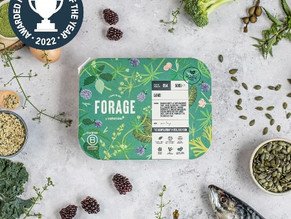Dog owners in the UK know the importance of dieting to the health of their furry friends. From fresh food to canned, you can find many options available in the market. Frozen dog food has become increasingly popular in the UK due to its nutritional benefits and convenience.
Frozen dog food is a promising alternative to processed food. It provides countless benefits to dogs. However, finding the best frozen food for dogs in the UK is challenging, with many options. In this post, we will explore a step-by-step guide to choosing the right frozen meals that will improve your dog’s health and well-being.
Step 1: Understanding the Importance of Frozen Dog Food
Before explaining how to pick the best frozen food for dogs in UK, we need to discuss why this option is a good choice for your pet. Frozen meals are usually less processed than dry kibble or canned food, so they have more nutrients.
Frozen dog food tends to have a higher protein content and more vital fatty acids for your pup. Also, they don’t need artificial preservatives to make them self-stable options. This diet option often benefits a dog’s digestion, as this type of food is more natural and freer from commercial additives.
Step 2: Think About What Your Dog Needs
Every dog has unique dietary requirements based on age, breed, size, and health issues. Puppies require more calorie-dense and nutrient-rich food than adult dogs, while seniors may need weight management diets or lower-calorie foods.
Larger breeds may require more protein and joint supplements. Like smaller breeds, anything with a faster metabolism may do well on foods built for their type. In case of allergies or a sensitive stomach, opt for single-protein frozen foods or grain-free choices that are gentle on the gut.
Step 3: Search for Comprehensive and Balanced Nutrition
No matter what kind of dog food you choose, the most important consideration is to get complete and balanced nutrition. In the UK, pet foods described as “complete” must meet nutritional standards administered by authorities such as FEDIAF (European Pet Food Industry Federation).
Choose frozen products that are labeled as complete instead of complementary. Complete frozen meals provide all the crucial ingredients and nutrients your dog needs. Also, ensure the food contains a good level of protein, fats, vitamins, and minerals. Dogs need a high-protein diet from animal sources with fat for energy.
Step 4: Examine Ingredient Quality
What you feed your dogs, and the quality of those ingredients can arguably make or break their health. Choose frozen food for dogs in UK with high-quality meat like chicken or beef as the first ingredient.
Also, choose the brands that provide whole cuts of meat and veggies without adding additives or fillers. Avoid options with artificial additives, colours, and flavours.
Step 5: Consider Easy Accommodation and Storage
Frozen dog foods need proper storage to maintain their original taste and nutrition. Make space in the freezer to put a few days’ worth of meals at once. Before you can provide frozen meals to your pet, they need to thaw— which usually occurs overnight in the fridge or at room temperature throughout the day.
If you have less space in your freezer or want something even easier, opt for freeze-dried options. You can store the food at room temperature. However, be sure to rehydrate the meals before serving them.
Step 6: Compare Pricing and Consider Subscription
Typically, frozen dog foods in the UK can be pricier than traditional meals due to their higher quality ingredients and nutritional value. However, many brands offer subscription models that can save you money over time.
Conclusion
The demand for frozen food for dogs in UK has been on the rise for the past years. UK dog owners choose this meal option due to its comprehensive benefits and convenience. If you follow these steps, you will find the best frozen food for your dog, improving your health and well-being.
However, some frozen meals may not be suitable for all dogs. Some dogs may have weak digestive systems that require a special diet. So, always consult your vet before switching to any significant dietary changes.
